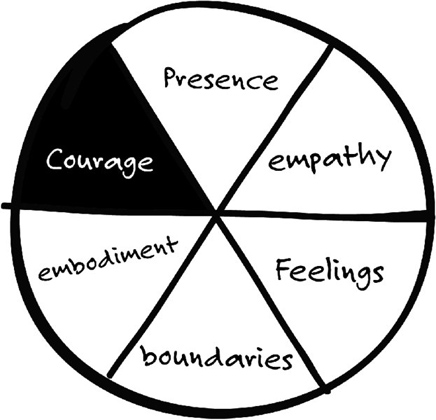Chapter 9 Courage

You cannot swim for new horizons
until you have the courage to
lose sight of the shore.
—William Faulkner
Courage Has Many Forms
Faulkner says it well—it takes courage for us to lose sight of our shores. If we don’t let go of what we know, our capacity to reach new horizons is greatly constrained. This concept of courage has roots in our earliest recorded human writing and the meaning of the concept has depth and nuance. Today, writer and philosophy professor Daniel Putnam (2004) considers three kinds of courage: physical, moral, and psychological. It is the third kind that we will look at most closely for its relevance to the work of coaching.
First, a few words about physical and moral courage. Physical courage was at the heart of the ancient Greek sagas of courage in the tales of Odysseus and others. Odysseus’s courage was predominantly of a physical nature, as it entailed enduring a 10-year struggle to return home to Ithaca following the Trojan War. Each stop along his journey was fraught with physical dangers requiring enormous courage as he battled mythical beasts and the ire of the gods. Modern-day versions of physical courage are equally daunting. Think of the courage of the 70 million refugees in our world today who continue to put another foot forward walking across continents, searching for a safe place to exist.
Moral courage is the kind ...
Get Self as Coach, Self as Leader now with the O’Reilly learning platform.
O’Reilly members experience books, live events, courses curated by job role, and more from O’Reilly and nearly 200 top publishers.

